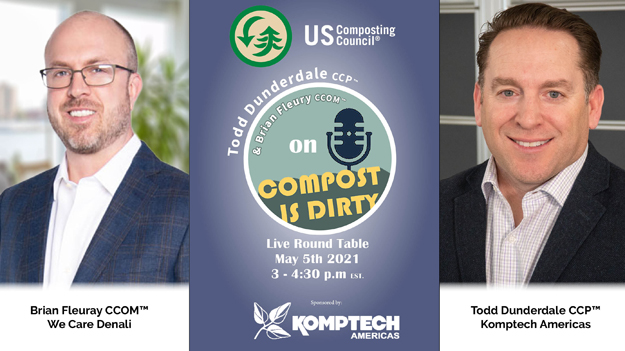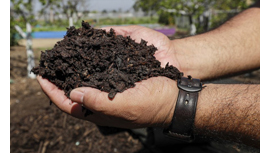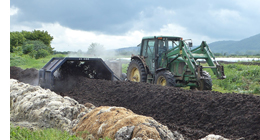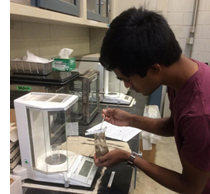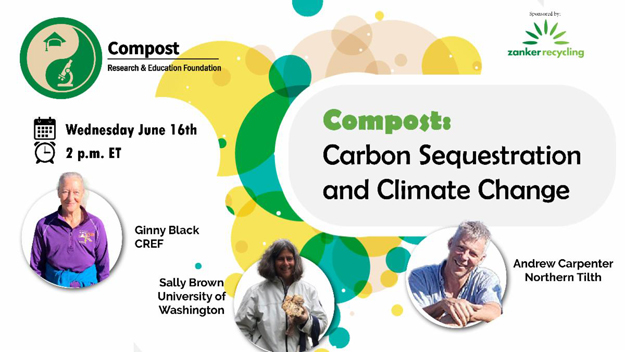 |
|||||||||||||||||||||||||||||||||||||||||||||||
| Past Issues | Subscribe | Send to a Friend | compostingcouncil.org | |||||||||||||||||||||||||||||||||||||||||||||||
|
If you need any help with your ICAW plans, a good place to start is going to the ICAW website, where we have many ICAW pages, resources and attachments - all ready to help you with your planning. Here are just a few ways to get involved:
If you have specific questions or need help with anything, contact Beth Simone at bethsimone@compostfoundation.org.
Losing the battle but winning the war? The U.S. EPA released its clopyralid interim decision (ID), and it’s not all bad news! The EPA released the ID on the reregistration of clopyralid on March 18, and, while we did not get much of what we asked for, taking a long view shows significant progress. Unlike earlier rounds of reregistration, the ID clearly states "clopyralid is persistent in compost and can cause non-target plant damage from use of composted material contaminated with clopyralid residues.” In response to our comment letter, it states, "EPA acknowledges that clopyralid and other persistent herbicides pose significant risks to the compost community, which have been reported in multiple incidents, some as recent as May and June 2020.”
On the other hand, the EPA gave us very little of what we asked for, including:
One other positive note: The EPA has agreed, at least in principle, with the NRCS’s call for a multi-stakeholder working group to address not only clopyralid but other persistent herbicides as well. "The Agency looks forward to working with USCC to create best management practices for composting and to resolve remaining uncertainties with respect to persistent herbicides in compost.” The USCC will be part of that group, and we will report back to membership on those meetings. If you are interested in reading the full ID, including the agency's response to ours and others' comments, go to www.regulations.gov/document/EPA-HQ-OPP-2014-0167-0622.
Mentors will provide mentees with career advice and insight based on their professional experience, which will help the mentees to make informed, strategic career decisions and advancements. Our mentoring program helps young professionals between the ages of 21 and 40 with professional development as they grow in their careers, personal capabilities and businesses. Mentees: To all young professionals in the composting industry, here is your chance to be part of a year-long mentoring program with a senior member of the US Composting Council. Please fill out this form by April 30 to be considered for our YP Mentor Match Program. Apply here. Mentors: If you are interested in helping young professionals in the composting industry, we want your help! Are you in our professional certification program? You can also earn some Professional Development Hours by being a mentor. Please complete this application by April 30 to be paired with a USCC mentee. Apply here.
Though traveling across the country in a car is laborious, Linda Norris-Waldt Advocacy, Corporate Relations & Chapter Relations Director, and Gowri Sundaram, Database Manager, made the commute to Raleigh as well. Though Cary Oshins could not be here in person, he did make it into this photo through the power of Photoshop. As the council evolves and adapts to the needs of our membership, we need to continually analyze our strategic plan to best serve the compost community as a whole. The entire USCC staff is so excited to be working toward a common cause. This year will be big for compost on a number of fronts: record breaking demand, new and exciting resources for composters and municipalities, new legislation, and the return of the IN PERSON conference in Austin, TX, in January 2022. We will all be very busy this year!
You’ve probably read it in other publications: 2021 seems to be the year of Extended Producer Responsibility initiatives across the U.S. What is Extended Producer Responsibility? Think of it as "product-maker pays for taking care of the end product.” It’s a policy tool that’s been used as a way to have product manufacturers pay for the social cost of disposing of certain products when it hasn’t been embedded in the consumer’s purchase price. Sometimes, it’s a fee on products that is then turned over to governments, the industry, or a third-party entity to take care of the social impact of their product; in other cases, such as "bottle bill” states, the manufacturers themselves must actually take care of their product when the consumer has finished with it. The hope is that it will cause product manufacturers to look for ways to lower the impact of their product on the environment. It’s also called product stewardship. The National Caucus of Environmental Legislators, a group of state assembly members from legislatures around the country, developed a template EPR bill to help the traditional recycling industry, which has been beleaguered by market problems caused by the China Sword (refusal of Chinese companies to take contamination from U.S.-shipped recyclables). However, USCC and its allies, such as the Biodegradable Products Institute and Compost Manufacturing Alliance, have been working behind the scenes because many of the bills introduced steer the funding toward recycling programs for cans, bottles and paper - not organics collection. So far, USCC has written letters of opposition to bills that have not included organics programs as beneficiaries of the fees in New York and Oregon. See letters here. It is unfair to collect fees from our allies in this industry that do not directly benefit the industry. Additionally, the population’s recent aversion to single-use products and the push to make them compostable is wreaking havoc on compost manufacturers’ contamination problems and exacerbating infrastructure issues. One bill in Oregon does include compost infrastructure development as a recipient of funds, and USCC is poised to support that. Stay tuned for more on this developing policy issue.
The Michigan Organics Council (MOC), a committee of the Michigan Recycling Coalition and a State Chapter of the USCC, has been awarded an Organics Market Development grant through the Michigan Department of Environment, Great Lakes, and Energy (EGLE) under the project name of Landscape for the Lakes (LFTL) Campaign. LFTL Campaign aims to increase the diversion of organics to compost manufacturing by promoting the use of organics end products to targeted industries by providing technical information about compost value application to meet specified needs. The LFTL Campaign partners include Resource Recycling Systems (RRS), the US Composting Council, R. Alexander Associates, Doers Consulting, West Michigan Sustainable Business Forum, Country Oaks Landscape Supply and Composting, and Emmet County Recycling.
Partners will research local supply chains and pair their findings with existing information to develop toolkits to train Michigan experts to convey information to targeted audiences across the state. By connecting organic waste generators, haulers, and compost manufacturers with end users, LFTL can further sustain an organics circular economy to benefit healthy soils, clean air and water, a stable climate, and sustainable systems.
Generally identified as yard clippings, untreated wood waste, pre and post-consumer food scraps, and non-recyclable paper; organics represent more than 50% of the municipal solid waste stream by weight. Furthermore, some of the industries that will be targeted also have organic waste of their own that needs to be managed. Recovering food and other organics and moving them through a circular economy system requires businesses, governments, and organizations to know both the value of alternative management techniques and the value of resulting end products in the marketplace.
Shelby Hoglund is a PhD candidate at the University of Arizona Department of Environmental Science. Her research connects organic waste management with agricultural sustainability. As a Foundation for Food and Agriculture Research Fellow, she engages in relationships between academia and industry to bring research into practice. Currently, she studies multi-year effects of biochar and co-composted biochar on arid cropland soil health and productivity during reduced irrigation. She is the current Chair for the Mentorship Committee, which has paired dozens of young professionals with mentors. To apply for a mentorship/menteeship, visit the Mentor Match Program webpage.
Antoine Abou-Moussa holds a master's in environmental engineering, a bachelor's in chemistry and a university degree in social entrepreneurship. With more than 10 years of international experience in consulting, engineering and management of waste-related projects, Antoine is an ecopreneur, who founded an award-winning Lebanese social enterprise, Compost Baladi SAL, that specializes in the transformation of bio-waste into bio-resources by using international solutions adapted to local needs. Antoine is also co-founder of CubeX SAL, a Lebanese company that develops and supplies technologies for the recycling of liquid biowaste, and of Compost Baladi SAS, a Colombian waste management technology and consulting company. Antoine is a member of the Mentoring Committee of the USCC Young Professionals Program. He is the Emerging Composter Committee Chair for the year 2021-2022.
Felipe Pedrazzi is a biologist with a master's in geology and PhD on earth sciences/environmental studies. He worked with several environmental agencies in Sao Paulo State, Brazil. In 2010, he founded an NGO to plant trees in public areas in Sorocaba, a city where he lives and planted more than 200,000 trees with private partnerships. In 2014, Felipe founded FAZ VERDE, to take care of green areas in closed neighborhoods. To date, it has grown into 155 hectares. He also started some community yard waste composting sites in 2010. He runs another composting facility in the countryside of São Paulo State to manage yard waste, biosolids, hatchery wastes, food scraps and manures. In 2017, Felipe collaborated with USCC and visited a few compost facilities on the East Coast. Since then, he has been a member of the YP group and has volunteered at annual conferences. He is the current Chair for Webinar Committee, which has hosted numerous webinars on subjects like campus composting and alterative composting methods. To join the YP Program or to learn more, visit the YPG page on the USCC website.
Chris' passion for composting always tied in well with his dream of going off grid and living almost 100% sustainably off Mother Earth. Not just that, but he also wants to help dedicate himself to bettering the industry. Whether it be through his own experiences or alongside the best researchers out there about the processes, equipment or methods of composting, he wants to be a part of it: "We are all on the cusp of history in composting and the magic that happens microscopically. There is so much that we already know but imagine how much untapped potential is still waiting to be discovered...priceless!" Chris achieved STA Certification for Re-Soil's Compost and is active on the USCC forums, where he is a Member Ambassador. He strives to make the best product he can using regionally and locally sourced feedstocks. He has some big plans in the works and is super excited to be able to share with everyone. "Why I chose to pursue the Certified Compost Operations Manager Certification: Well, that's easy. To further my knowledge and advance my skill set building from the ground up along with a tiny bit of industry recognition. The things everyone at the USCC and the foundation does is nothing short of amazing. I will never forget that amazing week I had at COTC Raleigh. I have been so blessed to have collaborated on so many different projects in the last two or three years that it all is starting to blur together. But each has been a fun, wild, journey and I cannot wait for the next to begin. Right now is the time for composting, advancing the industry, and helping make this beautiful world we live on a more sustainable and green place to live!"
Are you ready for the spring season? Let’s talk dirty/compost. On Wednesday, May 5 at 3 p.m. EST, Todd Dunderdale, Senior Sales Manager - West of Komptech Americas, and Brian Fleury, President of USCC and General Manager of Facilities at WeCare Denali, LLC, will join USCC to discuss the dirty details of compost. From the future of compost manufacturing to supporting the compost equipment industry, you won’t want to miss the first webinar of "Compost is Dirty.” Whether you’re new to the compost industry or looking for fresh insights into the business, roll up those sleeves and join us to talk compost! Register for free today. (Requires member login.)
USCC member Michael Martinez, founder of L.A. Compost, recently penned a letter to the editor of the Los Angeles Times: Michael states "I applaud columnist David Lazarus for highlighting the enormous problem of food waste in this country, which is both a crime and a tragedy when so many Americans suffer food insecurity. I only quibble with his characterization of composting as "nasty" and possessing a "yuck factor." Properly done, it is neither."
World Centric® today announced a new and unique collection of certified compostable molded fiber single-use cutlery and serving utensils. This collection of wood-free, plastic-free products provides the foodservice industry with a more environmentally-conscious option to traditional disposable cutlery and serving utensils and is suitable for a broad range of common food serving and meal prep uses. Currently, available items include 6” and 3” spoons, 6” sporks, and 10” serving utensils capable of hot or cold use. Additionally, molded fiber 6” forks and knives will be available in Spring 2021.
World Centric is the first in North America to offer molded fiber cutlery for use in the disposable foodservice industry. In the U.S., over 100 million plastic utensils are used daily, and over 27 million tons of plastic end up in U.S. landfills each year. Traditional plastic utensils are made from petroleum, are too small to be recycled easily, and will never decompose. Plastic cutlery is one of the most common items found in the ocean. World Centric’s molded fiber cutlery is made from discarded sugarcane and rapidly renewable bamboo fibers, reducing a source of plastic leakage into the environment. The molded fiber cutlery collection is certified commercially compostable by the Biodegradable Products Institute (BPI) and contains no added PFAS or bioplastic. The new collection joins World Centric’s suite of existing Leaf molded fiber products, including containers, plates, bowls, portion cups, and lids. It is part of a suite of eco-conscious and compostable products including the NoTree™ hot and cold cups, and other plant-based food service ware available across North America.
The Compost Site Operator is responsible for all aspects of managing and making high-quality compost. Prairie Dirt Solutions has multiple sites in the Oklahoma City metro area. The person in this position will run equipment such as loaders and turners, will test compost and will collaborate with other team members.
We are pleased to announce that BioCycle Associates (Nora Goldstein, Craig Coker and Doug Pinkerton) have been awarded the contract to produce two deliverables:
These documents will provide foundational understanding that compost manufacturers need to make informed decisions of whether, which and how to accept (or reject) compostable products at their facilities. They will both be published this summer as part of the virtual conference on compostable products. The conference will take the form of two workshops in June and a summit in July. Watch for more information on this exciting event soon!
The California Compost Manufacturing: Principles & Practices (CM:PP) course consists of a two-day livestream course and an optional third-day facility tour (self-driven), which is designed to expand or refresh your knowledge of the compost production process and begin your certification as a composting industry professional. The course is best suited for those who need an in-depth understanding of the composting process, such as consultants, vendors, regulators, policy-makers, investors, environmental activists, sustainability professionals and recycling coordinators.
The California CM:PP offers the choice between two facility tours, located in Northern and Southern California. The NorCal and SoCal tours will provide examples of facilities that vary in size, accepted feedstocks, and processes. The stops will include equipment demonstrations of manufacturing equipment and "tools of the trade."
The Compost Research & Education Foundation (CREF) is offering scholarships to undergraduate through PhD students studying at a college or university in the U.S. interested in doing compost-related research projects. The scholarship is for $4,000, and it also includes an invitation to present research findings at a US Composting Council Annual Conference during a CREF research session.
The goal of this scholarship is to bring assistance to students doing compost-related research and to spark interest in future careers in the composting industry.
Offered on June 16 at 2 p.m., this webinar will look at compost and carbon sequestration. With all the buzz in the news about carbon sequestration, greenhouse gas emissions and soil health, it is imperative for compost operators, compost marketers, municipalities and consultants to understand where composting and compost itself fit into climate change issues. Composting can be a critical component in addressing global climate change. This webinar will cover the carbon cycle as it relates to composting organic wastes and the sequestration of carbon in soils when finished compost is applied back to the land.
The webinar will discuss factors that affect the ability of soils to sequester carbon from composts, as well as the effect of that sequestered carbon to promote soil health, and it will discuss current methods for quantifying soil carbon, and its benefits in compost-amended soils. We will cover some potential carbon debits, such as methane and nitrous oxide emissions, that may need to be controlled during composting to ensure the maximum benefit of composting to composters’ total carbon footprint. Finally, the webinar will briefly discuss some of the existing models for estimating greenhouse gas debits and credits from the composting process and from compost use.
|
|||||||||||||||||||||||||||||||||||||||||||||||
 ICAW 2021 is only a couple of weeks away. It starts on May 2 and runs until May 8. Whether you're doing everything online or a mix of online and socially-distanced outside activities, there are lots of creative ways for you to help share the ICAW message on the importance of organics recycling and the many benefits of compost use.
ICAW 2021 is only a couple of weeks away. It starts on May 2 and runs until May 8. Whether you're doing everything online or a mix of online and socially-distanced outside activities, there are lots of creative ways for you to help share the ICAW message on the importance of organics recycling and the many benefits of compost use.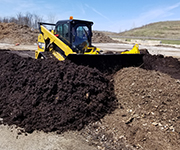
 To address the compost contamination concern, the ID includes several policies:
To address the compost contamination concern, the ID includes several policies: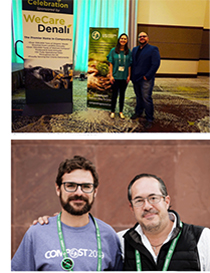 USCC Young Professionals Group aims to connect the composting industry's emerging professionals with more experienced professionals through the Young Professionals Mentor Match Program.
USCC Young Professionals Group aims to connect the composting industry's emerging professionals with more experienced professionals through the Young Professionals Mentor Match Program. A majority of USCC staff assembled in Raleigh, NC, this past week to come together as a team. Over a year into this pandemic, the personal connection that we share needs to be aerated. With the addition of Hessa Al Maghlouth in February 2021, Gowri Sundaram in December 2020, and Eric Hudiburg in June 2020, the council staff has grown tremendously over the past year.
A majority of USCC staff assembled in Raleigh, NC, this past week to come together as a team. Over a year into this pandemic, the personal connection that we share needs to be aerated. With the addition of Hessa Al Maghlouth in February 2021, Gowri Sundaram in December 2020, and Eric Hudiburg in June 2020, the council staff has grown tremendously over the past year.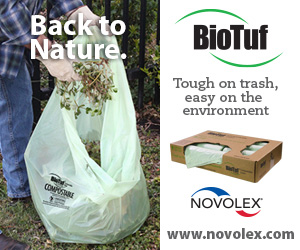

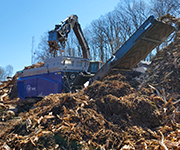
 Thanks to the leadership of the North Carolina Composting Council, a number of state chapters will be presenting and underwriting a webinar and appearance by Finian Makepeace of Kiss the Ground (producer of
Thanks to the leadership of the North Carolina Composting Council, a number of state chapters will be presenting and underwriting a webinar and appearance by Finian Makepeace of Kiss the Ground (producer of 
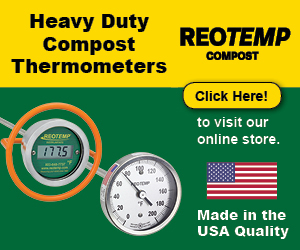
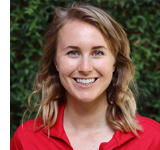 Shelby Hoglund
Shelby Hoglund Antoine Abou-Moussa
Antoine Abou-Moussa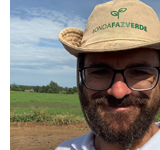 Felipe Pedrazz
Felipe Pedrazz Christopher Templeton is the Compost Facility Manager for Re-Soil Compost, a Class III commercial composting facility owned by Green Energy Biofuel, just outside Columbia, SC.
Christopher Templeton is the Compost Facility Manager for Re-Soil Compost, a Class III commercial composting facility owned by Green Energy Biofuel, just outside Columbia, SC. 